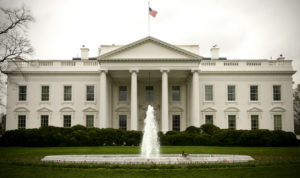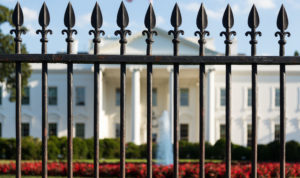
Four states legalize recreational marijuana, Florida increases minimum wage, and more…
IN THE NEWS
- Voters in New Jersey, Arizona, Montana, and South Dakota approved state plans to legalize and tax recreational marijuana use for adults, and voters in Mississippi approved plans for a medical marijuana program through the state’s Department of Health. In New Jersey, the approved plan requires New Jersey Governor Phil Murphy to provide oversight of the budding industry through the Cannabis Regulatory Commission, which currently manages New Jersey’s medical marijuana program. In Oregon, voters approved a plan to decriminalize, but not legalize, all drugs including cocaine and opioids. The plan will impose a civil penalty of $100 on individuals arrested with small amounts of hard drugs or require them to enter into a recovery program funded by tax revenues from marijuana sales, which were legalized in Oregon several years ago. Kassandra Frederique, director of Drug Policy Alliance, celebrated the vote by saying that Oregon showed the world that a “humane, compassionate approach” to treating drug addiction is possible.
- Voters in Florida approved a ballot amendment that will raise the minimum wage to $15 an hour by September 2026. Voters approved the amendment by a less than 1 percent margin. Carol Dover, president and CEO of the Florida Restaurant and Lodging Association reportedly said that the wage increase will lead to job cuts. Attorney John Morgan, who led the campaign to pass the measure, called the increase in the minimum wage a “forever raise,” and said that “the working poor and their families just got a better life.”
- President Donald J. Trump issued a memorandum directing U.S. Secretary of Energy Dan Brouillette to research the consequences of banning or restricting fracking, a method of obtaining natural gas. The Trump Administration also directed the U.S. Office of Information and Regulatory Affairs to expand requirements to consider and disclose alternatives for any agency policies that may have negative effects on the energy industry. Brouillette predicted that the studies would find that “a ban on fracking would result in the loss of millions of jobs, the doubling of gasoline prices, and the quadrupling of electricity costs.” The memorandum came three days before Election Day as a possible appeal to voters in Pennsylvania, where a poll in The New York Times found that voters strongly favor fracking.
- California voters approved a ballot initiative that changes the California Consumer Privacy Act by requiring businesses to allow consumers to opt out of having sensitive personal information used for online advertising and by establishing a dedicated state agency to enforce the law. Former presidential candidate Andrew Yang endorsed the initiative, saying that it strikes a balance between protecting individual privacy and supporting online businesses that rely on consumer data for advertising. Privacy rights advocates such as the American Civil Liberties Union and the Electronic Frontier Foundation did not support the initiative, arguing that it would create loopholes for some businesses and cause bureaucratic barriers for consumers who wished to protect their privacy.
- The Trump Administration reportedly approved Georgia Governor Brian Kemp’s request to direct residents to private brokers and insurers rather than the federal healthcare.gov website. Georgia will become the first state without a government-run website for residents to enroll in Affordable Care Act plans. The Trump Administration and Governor Kemp reportedly argued that the removal of the website “will increase innovation from the private sector.” When the removal was first proposed, the Center on Budget and Policy Priorities warned that “tens of thousands” of people could lose health insurance coverage due to the removal of the website, and that some residents could be pressured to sign up for “substandard plans.”
- Nine environmental groups asked a court to review a U.S. Environmental Protection Agency (EPA) final rule that relaxed standards for the amount of toxic pollution that could be discharged into water bodies by power plants. Jennifer Peters, water programs director at Clean Water Action—one of the plaintiffs in the suit—said that the Trump Administration “is propping up a dying industry that has put our health at risk for decades, and fueled the climate crisis, by giving them a free pass to continue to dump deadly pollution into our water,” which “puts the most vulnerable communities at further risk.”
- The U.S. Department of Labor issued a rule that prohibits retirement and employee benefit funds from investing money solely on the basis of positive environmental, social, and governance performance. The new rule amends the regulatory definition of fiduciary duties to clarify that non-financial considerations may not form the basis of retirement plan investment decisions. Public Citizen, a consumer protection group, issued a statement condemning the rule for ignoring opposing public comments from consumers and investors and for being part of “a war against disclosure of important matters like corporate political spending, climate impacts, and human rights.”
- The U.S. Supreme Court held that a lower court erred in granting corrections officers qualified immunity in a lawsuit alleging that the correctional officers confined Trent Taylor, an inmate, to “shockingly unsanitary cells.” Trent Taylor alleged that six correctional officers confined him to unsanitary cells, covered in human waste for six days. The Supreme Court found that the U.S. Court of Appeals for the Fifth Circuit properly found that the conditions violated the Eighth Amendment, but held that “no reasonable correctional officer could have concluded that, under the extreme circumstances of this case, it was constitutionally permissible to house Taylor in such deplorably unsanitary conditions for such an extended period of time.” Samuel Weiss, executive director of the criminal justice organization Rights Behind Bars, reportedly praised the decision for enforcing limits to qualified immunity.
- U.S. Democratic Representatives Alexandria Ocasio-Cortez (D-N.Y.) and Rashida Tlaib (D-Mich.) introduced a bill that would call on the Federal Reserve System and the U.S. Department of the Treasury to authorize and financially support public banks. The proposed public banks would offer free checking and savings accounts without minimum balance requirements to increase low-income household access to financial services. Representative Tlaib stated that “it is long past time to open doors for people who have been systematically shut out.” Representative Ocasio-Cortez added that “public banks empower states and municipalities to establish new channels of public investment to help solve systemic crises.”
- The Centers for Disease Control and Prevention (CDC) announced a framework to resume cruise ship passenger operations. The CDC will require cruise ship operators to develop on-board COVID-19 testing capabilities, run simulated voyages to test the COVID-19 mitigation plans, and obtain a new certification before restarting passenger voyages. After the CDC released its framework, Cruise Lines International Association announced plans to extend the voluntary suspension of cruise operations in the United States through the end of the year.
WHAT WE’RE READING THIS WEEK
- In a brief for the Brookings Institution, vice president and director of governance studies Darrell West argued that the Electoral College does not serve the interests of American politics well and that the United States should elect Presidents through direct popular elections. West noted that the founders created the Electoral College to account for anti-majoritarian concerns but argued that the Electoral College gives states with less economic activity the power to choose Presidents and dictate public policy. West claimed that if the United States does not abolish the Electoral College, it will undermine public confidence in democracy, distort the will of the people, and create a constitutional crisis.
- In a recent article, Susan E. Dudley, director of the George Washington University Regulatory Studies Center, examined the reasons why the U.S. Office of Information and Regulatory Affairs (OIRA) has endured for over 40 years. Dudley notes that many of OIRA’s regulatory functions originated from Executive Order 12,866 but have not changed significantly through six presidential transitions. The reason for OIRA’s durability, Dudley argues, is that OIRA monitors and coordinates actions across “an expansive bureaucracy made up of myriad narrow-mission entities.” Dudley recommends that future Presidents should resist replacing Executive Order 12,866 with a new order to maintain bipartisan support for OIRA.
- In a forthcoming article in the IP Theory, Mary Hannon, adjunct professor at DePaul University, argued that qualified women are unnecessarily excluded from the patent bar, which is a qualification that allows individuals to represent inventors before the U.S. Patent and Trademark Office. To increase the number of qualified women who are eligible for the patent bar, Hannon suggested updating eligibility requirements to reflect modern educational trends. For instance, Hannon recommended expanding the number and type of technical degrees that satisfy patent bar eligibility and accepting an apprentice model as a path to patent bar eligibility.
FLASHBACK FRIDAY
- In a 2017 essay in The Regulatory Review, Sam Batkins, former director of regulatory policy at the American Action Forum, discussed how the Trump Administration would prioritize reducing regulation across all executive agencies. Noting that President Trump promised to cut regulations during his 2016 campaign, Batkins evaluated whether regulation-reduction initiatives used in other countries could work in the United States. In particular, Batkins predicted that the Trump Administration would abandon the concept of a social cost to carbon, a tool developed by the Obama Administration to estimate greenhouse gas emissions.



